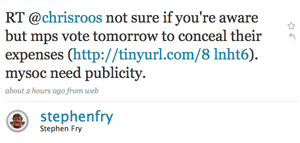I’ve provided a guest post for BeatBlogging.org, the US-based site that looks at how to use social networks and other web tools to improve beat reporting. Using examples from various Journalism.co.uk pieces, I argue that it is very difficult to look towards coverged newsroom, under the hybrid regulatory systems with which we operate as UK-based publishers. Thoughts welcomed.
Read it in full over at the site. Here’s an extract:
We talk about converging newsrooms of the future that transcend boundaries between online, print and broadcast, but at a very fundamental level that process is impossible in the United Kingdom.
Martin Belam, information architect for the Guardian, recently emphasized that point in an interview with Journalism.co.uk:
“In a converged media landscape, it seems odd that [BBC’s] Robert Peston’s blog is regulated by the BBC Trust, [Channel 4’s] Jon Snow’s blog is regulated by Ofcom, and [the Guardian’s] Roy Greenslade’s blog is regulated by the PCC.”
Now, Martin was actually wrong on the Jon Snow point: Ofcom does not regulate any television Web sites at all. That is to say, the brands which must adhere to a strict code for television content are completely unregulated online. Ofcom advises consumers to make complaints about online content to their Internet service provider.
The BBC Trust regulates the BBC online; the Press Complaints Commission (PCC) regulates newspapers, magazines and their online content.
And Stephen Fry, who – at the time of writing — is nearing half a million followers on Twitter? Or Guido Fawkes (aka Paul Staines) who has a loyal readership to rival most newspaper commentators? Well, they govern themselves – unless the law gets involved.
When the traditional media sectors go online, they’re regulated by their various bodies, and the ‘online-onlys’ only have the courts to worry about. Press publications have a less strict code than broadcasters, but online, broadcasters have more freedom than the press – though they don’t seem to be exercising it.
In a nutshell, a financial commentator from a newspaper has greater freedom than a financial commentator from a broadcaster, and an independent online-only financial commentator has the greatest freedom of all.
What happens when a bank crashes? Channel 4 and ITV can theoretically report how they like – online. The BBC must always answer to the BBC Trust. The newspapers must comply with the PCC code. Martin Lewis, of the MoneySaving Expert can, if he so chooses, be a law unto himself.
Same news and it’s all online but in very different guises. We might think people know the difference, but do they?
